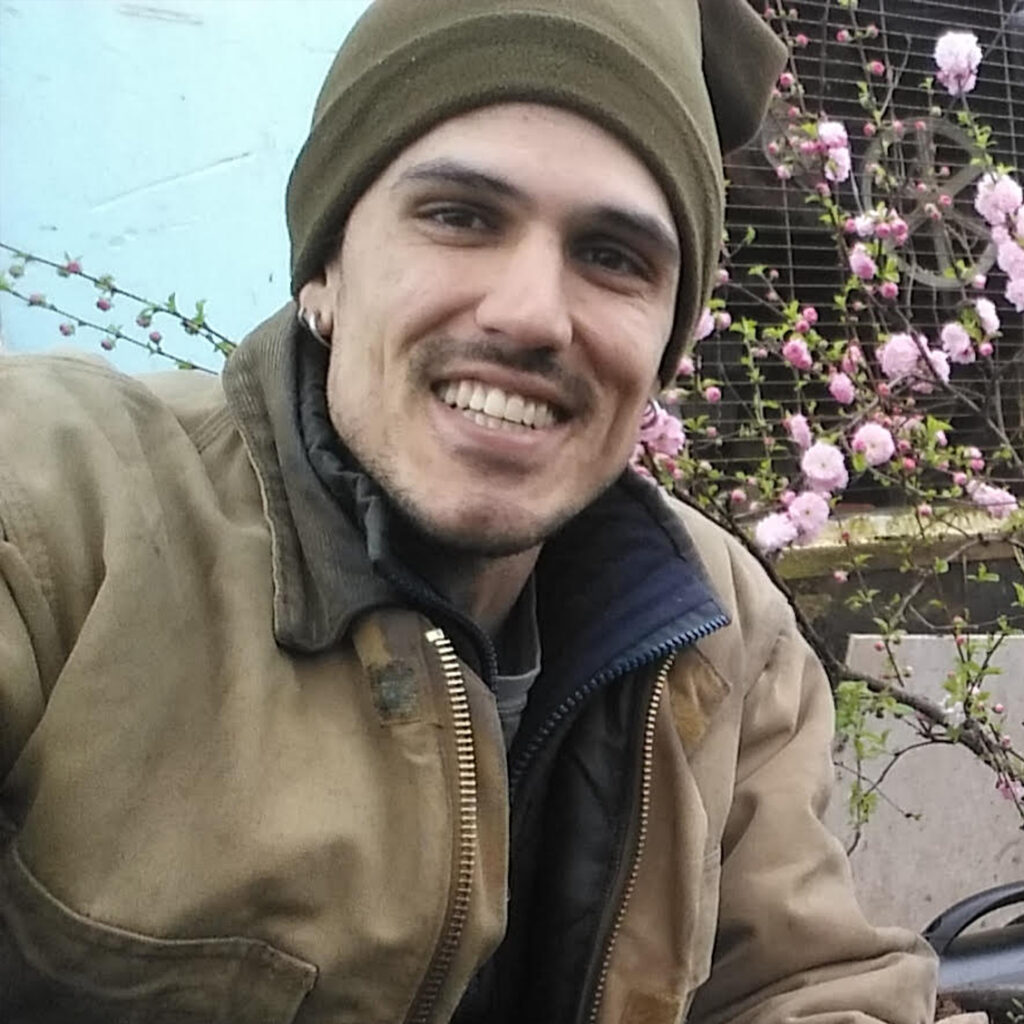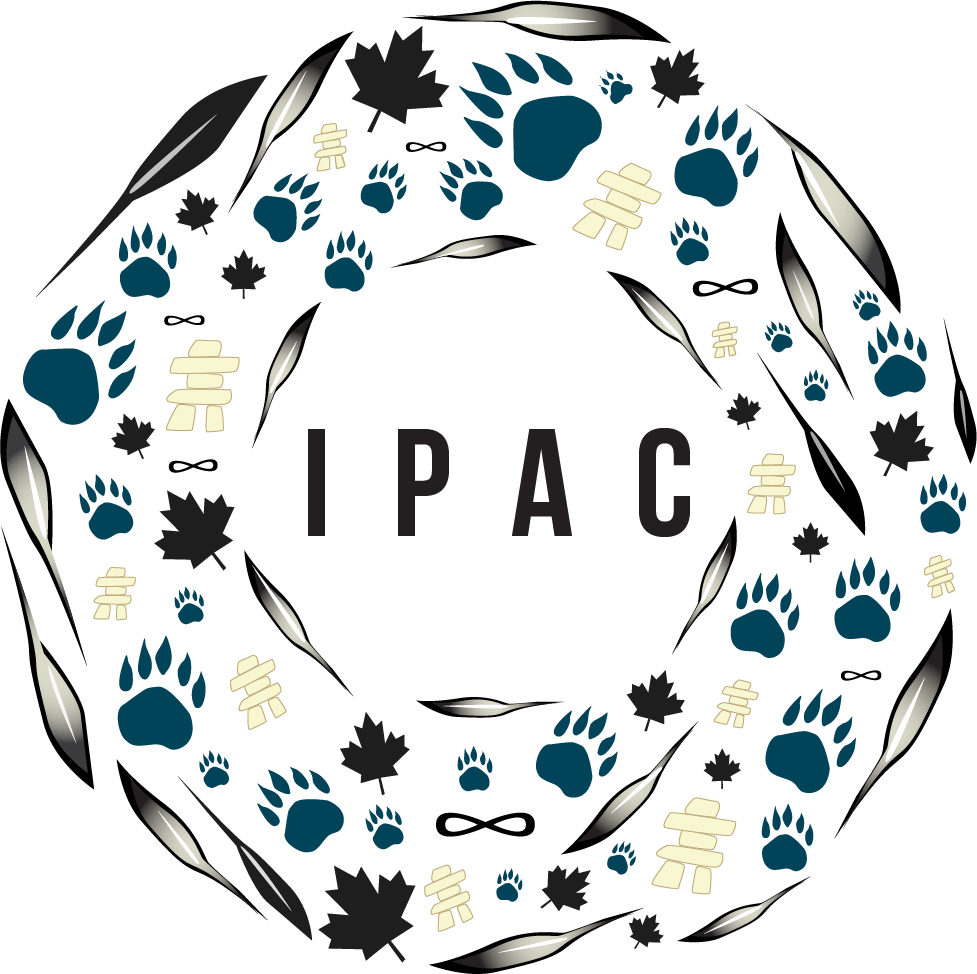RECOGNIZING EXCELLENCE ARIC AGUONIE

Aric Aguonie
Firstly introduce yourself and tell us where your home place is. Describe your job/jobs in just under four sentences. Please also provide your title and profession.
Manager/ Farmer at Earth Haven Farm
I am Aric Aguonie of the Sheguiandah First Nation. I live in Thomasburg Ontario on a 200 acre farm. i am a certified organic/biodynamic farmer producing market vegetables, Scottish highland beef, chickens, seeds, herbs, crafts, planting calendars, and offering mentorship and education to those who want it. I sit on the board of directors for the IAPO (Indian Agricultural Program of Ontario). I am the manager of the farm where I work with my mom and dedicated neighbour who depend on the farm for our income. I have been farming for 19 years.
What sparked your interest to work in this industry?
After growing up without any influence from my people. I couldn’t learn about our traditions/ way of life from anything available where I grew up. I found myself believing that the way to happiness was through today’s economic paths to a purposeful life (work now in hopes of a comfortable retirement).
I grew up in a privileged suburban home in Burlington Ontario. At the age of 6 I started a paper route and worked ever since. I may have been privileged but my parents showed me the value of independence and reaping what you sow through hard work. In my late teens I had worked in the fast food industry seeing the effects of malnutrition, and dominance over consumers choices to access good food. I needed change.
I went to Georgian College for Ski Resort Operations (hotel and resort management). After 6 years of managing some ski resorts in BC, Quebec, and Ontario, I found myself tired of climbing a ladder that went nowhere. I was not feeling full. Nothing I was doing was helping myself or my people.
We as a people are bound to the earth on every level. I asked myself “how can I get back to the land in this new world of land ownership”? I have always had a love of plants, herbs, traditional medicine. So I decided to focus on healing myself so I could heal others in time. During and after college I made a point to never be controlled by colonial influence. Luckily my mom bought 200 acres of farm land.
Since then I have been growing plants, animals and myself in hopes to save some seeds and knowledge that was once common amongst our people. Also I have grown my business to now have 2 employees plus myself. In conclusion. I didn’t want to grow into a colonial, and this was my best option.
What do you enjoy most about your profession?
I enjoy the appreciation from customers who know the value of food vitality and come back to get food from me. I love to be outside, and connected to the land daily. I am my own boss. I love being vulnerable to the elements of nature and weather. I offer hope to the native community who have lost their seeds and traditions to colonial ideals.
What educational preparation would you recommend for someone who wants to advance in this field?
At any age, go outside all day every day. The earth will take care of you. No education is required, just your heart and soul. Of course there is higher education for farm management. The possibilities of what anyone can farm is immense. It can take you wherever you wish to go.
What does success look like to you for Indigenous youth?
Bring it back to our way of life. Bring it back to the people. Want to study law? Represent MMIW for example. Get back to the land.
How has a failure, or apparent failure, set you up for later success?
I fail all the time. Keep moving. I like to think of myself as though im sitting in a tipi trying to survive traditionally. Back then I would have had no option to stay inside and wallow in my shortcomings/ situation. Get up and go get food and live to see tomorrow. Stay alive and you will see success eventually. Plant the seed and care for it. Over time and it will bear fruit for you, helping you to see tomorrow.
What are one to three books that have greatly influenced your life?
Black Elk Speaks by John G. Neihardt and Black Elk, and Medicine of the Earth by Susanne Ficher- Rizzi. The Hopi Survival Kit.
Do you volunteer? If so, where and why is that important to you?
I volunteer in any aspect that encourages youth to get into gardening through workshops here on the farm or at schools. I would like to do more, but as a farmer time is not so easy to find.
In the last year, what new belief, behavior, or habit has most improved your life?
Be flexible and diversify. Covid has forced me to abandon my down town Toronto market. I have had to adapt, and have begun selling food to a store on Bloor and Lansdown called “Easy Health food Store” in Toronto. I have less of a personal connection to the customer but I have Saturdays off to occupy myself with more farm work. I cant say my life has improved from this, but I now have weekends free.
What are some challenges you think the next Indigenous generation will face in your industry/profession?
There has been so few indigenous agriculturists in Canada that many seeds have been saved through colonial hands. To this day I have not had one indigenous youth come to learn from me. Caring for the land is dying like our language. Keeping a language alive is important. Also keeping traditional foods alive is important so we have something to talk about in the traditional language around the table. Food brings everyone together.
What advice would you give to a smart, driven student about to enter the “real world”? What advice should they ignore?
Money isn’t happiness. The modern idea of finding happiness when you work for retirement is misleading us to forget to find happiness today. Don’t climb the colonial ladder. Make your own ladder with your brain and climb it with your heart.

